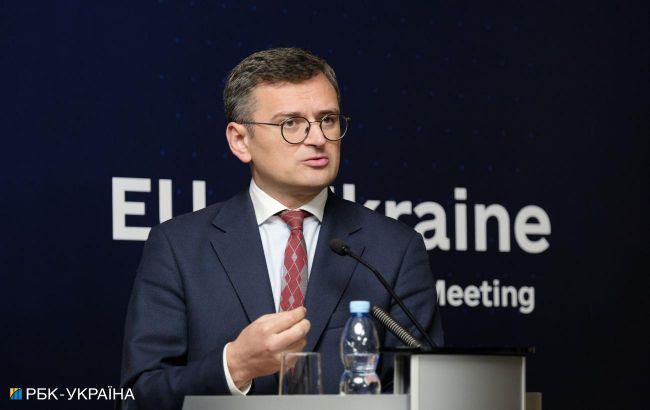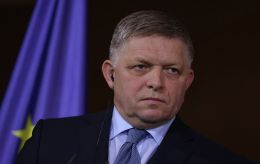MFA suggests forming 'Ukrainian-Polish alliance within EU'
 Photo: Minister of Foreign Affairs of Ukraine, Dmytro Kuleba (Vitalii Nosach, RBC-Ukraine)
Photo: Minister of Foreign Affairs of Ukraine, Dmytro Kuleba (Vitalii Nosach, RBC-Ukraine)
Minister of Foreign Affairs, Dmytro Kuleba, believes that Ukraine and Poland should consider the creation of a joint alliance within the framework of the European Union, according to Układ Sił.
"I think that what we should talk about, what we should already start thinking about, is a Ukrainian-Polish alliance within the European Union. Because we will be two very strong players. We will make Poland stronger, and Poland will make us stronger," said Kuleba.
In his opinion, Ukraine and Poland should already be considering how to address bilateral issues on the path to the European Union. This particularly pertains to the border blockade by Polish farmers and the export of Ukrainian grain.
"The deeper we get into the accession talks, the more such issues will come up from different sides. Poles and Ukrainians must prevent such situations from turning into problems and resolve them quickly and amicably, since we have already failed to prevent them from occurring," noted the minister.
He also believes that both Ukraine and Poland should contemplate the joint actions they will take within the European Union and what their common contribution will be. Kuleba emphasized that after Ukraine's accession to the EU, the entire Eastern Europe will be part of one European political project, except for Belarus.
"For the first time in history, the whole of Europe, from Lisbon to Kyiv, will live as one. Ukrainians and Poles will be part of this great project and will have a role to play. This is the kind of strategic discussion and partnership that I believe we must seek," Kuleba added.
Ukraine's negotiations for EU accession
On November 8, 2023, the European Commission recommended to the European Council to initiate negotiations for Ukraine's accession to the European Union. Ursula von der Leyen, the President of the European Commission, noted that Kyiv had implemented 90% of the necessary reforms to commence the negotiations.
On December 14, a summit of the European Council took place in Brussels, during which the leaders of member countries approved the commencement of negotiations for the accession of Ukraine and Moldova to the EU. During the voting, Hungarian Prime Minister Viktor Orban left the meeting room and did not block the decision. This action was prompted by the Chancellor of Germany, Olaf Scholz.
Blockade of the Ukrainian border
On November 6, Polish carriers initiated strikes at the border with Ukraine, intending to continue until the beginning of January 2024. The protest led to the blockage of several routes, allowing only one truck per hour to pass through. Later, the crossing point Medyka - Shehyni was also blocked. On the Polish side, representatives planned to lift the blockade by the end of 2023.
On December 24, Polish protesters stopped blocking the Medyka-Shehyni checkpoint for the holiday period, but on January 4, they resumed the actions. Nevertheless, on January 6, the parties signed the agreement, providing the reopening of the checkpoint.

